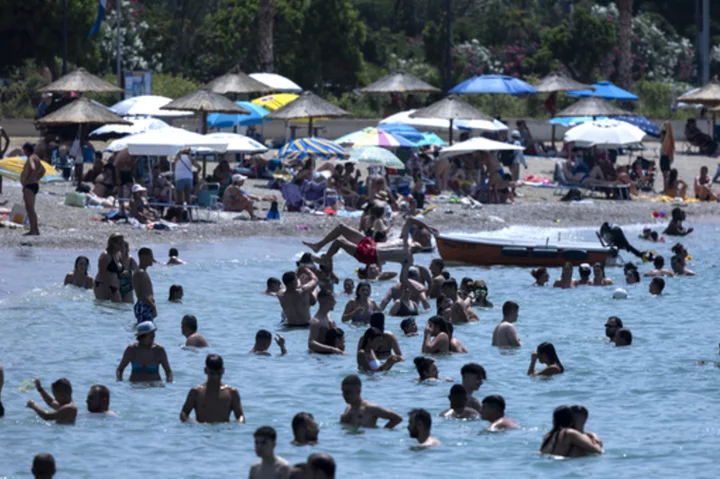
People and pets seek shade and cool as Europe sizzles under heat wave that's only going to get worse
Scorching temperatures across Europe have forced the closure of the Acropolis in Athens for a second day
2023-07-15 23:16
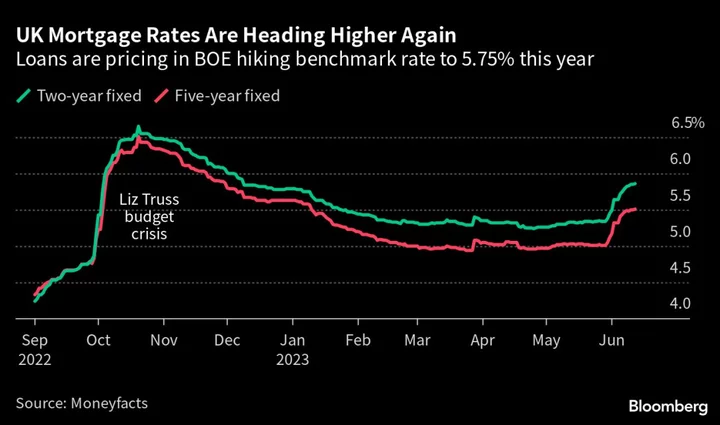
HSBC to Raise UK Mortgage Prices for Second Time in Under a Week
HSBC Holdings Plc told brokers it will raise prices on UK residential and buy-to-let mortgages starting Thursday, its
2023-06-14 19:24
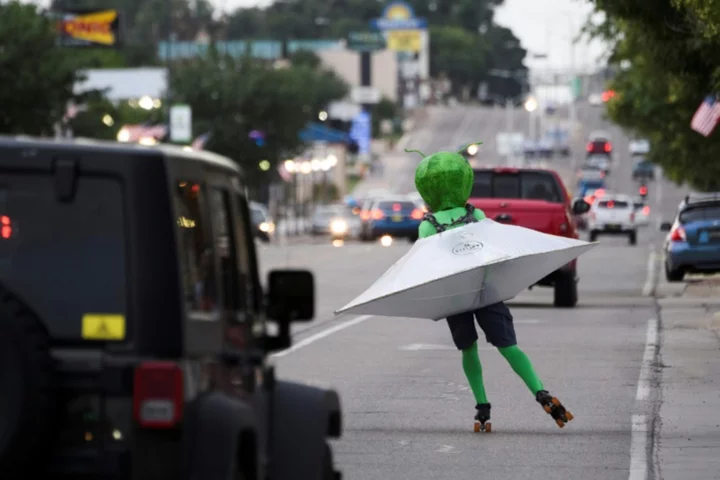
NASA joins the still controversial search for UFOs
NASA on Thursday officially joined the search for UFOs -- but reflecting the stigma attached to the field, the US space agency kept secret for hours the identity of the person heading...
2023-09-15 07:47

Meet “Emma Twin,” Dassault Systèmes’ Avatar Showcasing How Virtual Twins Drive Healthcare Innovation
VELIZY-VILLACOUBLAY, France--(BUSINESS WIRE)--Sep 18, 2023--
2023-09-18 15:22
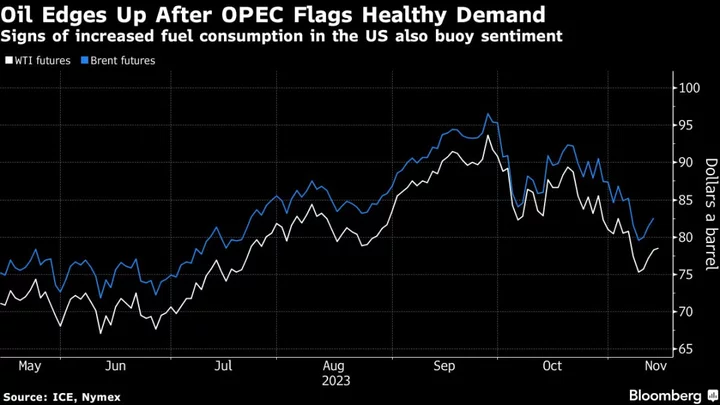
Oil Extends Relief Rally to Fourth Day on Better Demand Signals
Oil rose for a fourth day, the longest run of gains in over two months, on signs the
2023-11-14 12:52
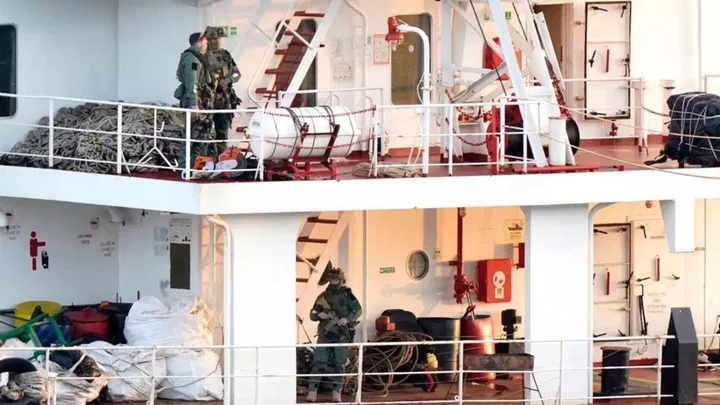
Eighth man charged over Cork boat cocaine seizure
An eighth man is charged in connection with the biggest drugs seizure in the history of the Irish state
2023-10-05 08:28
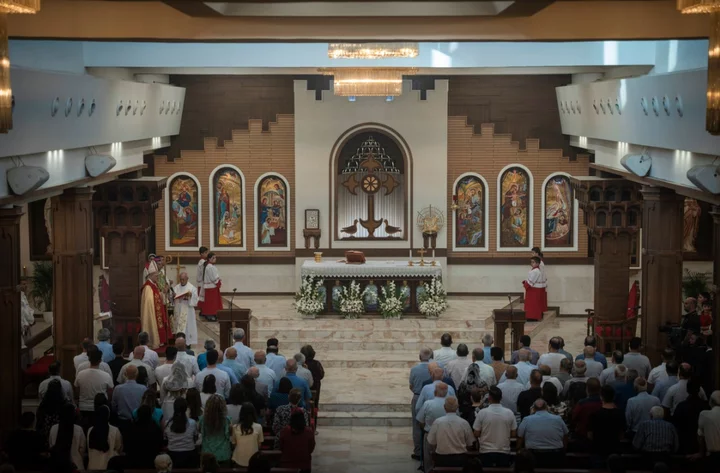
A feud between a patriarch and a militia leader adds to the woes of Iraqi Christians
Iraqi Christians have struggled since the Nineveh plains, their historic homeland of rolling hills dotted with wheat and barley fields, were wrested back from Islamic State extremists six years ago. Although the threat from IS has receded, some towns are still mostly rubble. There are few inhabited homes or basic services, including water. Many Christians have given up and left for Europe, Australia or the United States. Others are trying to follow. Now the shrinking religious minority that was also violently targeted by al-Qaida before the rise of IS has been rocked by yet another crisis in the form of a political showdown between two influential Christian figures — a Vatican-appointed cardinal and a militia leader, with land and influence at the core of the drama. The dispute adds to the woes of Iraqi Christians, who have often felt sidelined in the political order. A 2021 visit by Pope Francis provided a glimmer of hope that quickly faded. Meanwhile, the Christian population has plummeted. The number of Christians in Iraq today is estimated at 150,000, compared to 1.5 million in 2003. Iraq’s total population is more than 40 million. The political tension rose last month when Cardinal Louis Sako withdrew from his headquarters in Baghdad to northern Iraq’s semi-autonomous Kurdish region after Iraqi President Abdul Latif Rashid revoked a decree recognizing his position as patriarch of the Chaldeans, Iraq’s largest Christian denomination and one of the Catholic Church’s eastern rites. Sako said he will not return to Baghdad until his recognition is reinstated. His departure added to the feeling of helplessness among many Christians. “Of course, this affects us psychologically,” said Sura Salem, a Christian social activist in Baghdad. “You feel like a family without a father.” Christians staged a small protest in Baghdad over Sako’s departure, but Salem said “listening to the voice of the Christians is the last concern” of Iraqi leaders. Sako blames a campaign against him by Rayan al-Kildani, a fellow Chaldean Christian who formed a militia called the Babylon Brigades that fought against IS and still patrols much of the Nineveh plains. The group is affiliated with the Popular Mobilization Forces, a collection of primarily Shiite, Iran-backed militias. Its associated political party, the Babylon Movement, won four of five Christian-designated seats in Iraq’s 2021 parliamentary elections. Sako believes al-Kildani is angling to take over Christian endowments and properties. Al-Kildani has made similar allegations about Sako. “I have stood up to this militia and others who wanted to take over what rightfully belongs to the Christians,” Sako told The Associated Press, days after arriving in Irbil to a warm welcome from Kurdish officials. “Of course, no one defends Christians other than the church.” In Baghdad's upscale Mansour neighborhood, al-Kildani was busy building political alliances. On a recent afternoon, several couches in the palatial lobby of his party headquarters were occupied by well-dressed women wearing hijabs, beneath a painting of the Last Supper and a portrait of al-Kildani. One by one, the women entered the inner office, each one emerging with a gift bag. One of the visitors explained that they were political candidates interested in running on al-Kildani’s list in Mosul in December’s provincial elections. After the visitors departed, a smiling and courtly al-Kildani made his entrance. He insisted that he had no role in the withdrawal of the patriarch's decree and dismissed allegations that he was seeking to seize church lands. “I am the son of this church, and it is my duty to respect it, but it is unfortunate when a clergyman accuses someone without proof,” he said. Al-Kildani has accused Sako of selling off church properties, allegations the patriarch denies, and he has filed a lawsuit against Sako alleging slander. But al-Kildani said he is ready to meet with Sako to reconcile. Sako rejected the suggestion. Al-Kildani ”has a militia, and his loyalty is not to the church,” the patriarch said. “He is not a respectable person." The Iraqi president has downplayed his revocation of Sako's recognition as bureaucratic housekeeping, claiming it did not diminish the patriarch’s legal or religious status. The Vatican has remained largely silent. Its embassy in Baghdad said in a statement that the Iraqi Constitution guarantees that the heads of churches can administer church properties. A senior Vatican official, who spoke on condition of anonymity because he was not authorized to comment to the media, said the decree was unnecessary given the constitutional guarantees. He said the Holy See did not want to get involved in the dispute but had invited Sako to tamp down tensions with the Iraqi authorities for the sake of Iraqi Christians. The United States sided with Sako. State Department spokesman Matthew Miller said last month that the U.S. is concerned that Sako’s position "is under attack” by a militia leader who in 2019 was slapped with U.S. sanctions for his alleged involvement in human rights abuses, including cutting off a captive’s ear. Al-Kildani denied the allegations and accused the international community of being ungrateful after his group’s role in the fight against IS. He accused the Kurdish Democratic Party — the ruling party in the Kurdish region and a rival of the Iraqi president's Patriotic Union of Kurdistan Party — and the United States of engineering Sako’s withdrawal from Baghdad for political reasons. For some Christians, the drama is overshadowed by more pressing problems. As Baghdad resident Anan al-Dawi left a sparsely attended Mass on Sunday, her main concern was a recent power outage in the scorching summer heat. She struck a diplomatic tone regarding the feud between Sako and al-Kildani. Although physically absent, she said, Sako “lives in all of our hearts.” As for al-Kildani's group, she said: “I serve the country in my way. You serve it in yours, and they are also serving their country." Back in the Nineveh plains, in the town of Batnaya, patrolled by members of Kildani's militia, Lawrence Sabah owns a small factory where he makes mop handles out of wood imported from Russia. Sabah did not share his opinion on Sako or al-Kildani, but he had other complaints. “There are no services, even the water sometimes doesn’t come, and 70 or 80 percent of the houses were destroyed,” he said. He is hoping to join his parents and siblings, who have resettled in California. Some 8 kilometers (5 miles) to the north, in Kurdish-controlled territory, Raad Ekram owns an electrical supply store in the sparsely populated town of Telskof. When his family was displaced from the village to the city of Dohuk, Ekram believes he got short shrift from both the Iraqi government and the church. “We never saw the patriarch,” he said. “Of course, I don’t accept what happened to him ... and I don’t accept for him to be harmed.” But the patriarch "didn’t do everything he should have done for us.” He is encouraging his children to seek their fortunes abroad. “There’s nothing left in Iraq," he said, "especially for the Christians.” ___ Associated Press writers Nicole Winfield in Rome and Matthew Lee in Washington contributed to this report. ___ Associated Press religion coverage receives support through the AP’s collaboration with The Conversation US, with funding from Lilly Endowment Inc. The AP is solely responsible for this content. Read More Ukraine war’s heaviest fight rages in east - follow live Charity boss speaks out over ‘traumatic’ encounter with royal aide Biden's inaction on death penalty may be a top campaign issue as Trump and DeSantis laud executions On 3rd anniversary, Beirut port blast probe blocked by intrigue and even the death toll is disputed Mega Millions players will have another chance on Friday night to win a $1.25 billion jackpot
2023-08-04 13:50
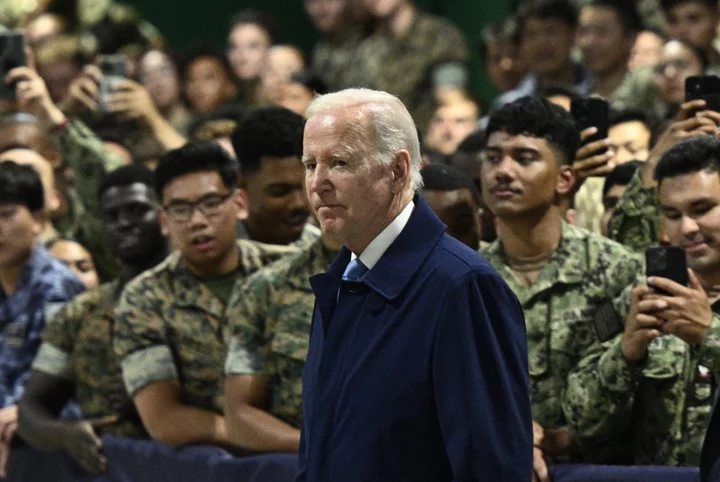
Critics say Biden is lying about how his son Beau died – they are ignoring the full story
Joe Biden has again been criticised for saying that his late son Beau “lost his life in Iraq” – a reference to the president’s long-held belief that toxic burn pits led to the younger Biden passing away from brain cancer at the age of 46. The president made his latest remarks to US troops stationed in Japan during his trip to the country, after making similar remarks at least twice last year. “My son was a major in the US Army. We lost him in Iraq,” said Mr Biden during an informal visit with troops at Marine Corps Air Station Iwakuni last Thursday in a video obtained by The New York Post. Right-wing media outlets have attempted to use Mr Biden’s comments on Beau’s death as a sign that the 80-year-old Democrat has memory issues ahead of the 2024 presidential election. Mr Biden’s son died of brain cancer in 2015 at the Walter Reed military hospital in Bethesda, Maryland. Last October Mr Biden made similar comments while speaking close to Vail, Colorado, as he designated Camp Hail as a national monument. The area, covering 436 square miles, was the training site of the 10th Mountain Division during the Second World War. Mr Biden spoke of the bravery of the division as they fought in Italy, before stating that he lost his son in Iraq. “Just imagine, I mean it sincerely, I say this as a father of a man who won the Bronze Star, the conspicuous service medal, and lost his life in Iraq. Imagine the courage, the daring, and the genuine sacrifice they all made,” the president said. A clip of the moment shared by the conservative Washington Examiner on Twitter has been viewed more than a million times. Beau Biden served in Iraq between 2008 and 2009 as a member of the Delaware Army National Guard. He was the Delaware Attorney General between 2007 and 2015. Just months after leaving the post, he passed away at the Walter Reed National Military Medical Center in Bethesda, Maryland on 30 May 2015. After his passing, he was given the Delaware Conspicuous Service Cross for “heroism, meritorious service and outstanding achievement”. “Beau Biden died of brain cancer in 2015, more than five years after he returned from a year serving in Iraq. Joe Biden has attributed the cancer to Beau Biden’s proximity to burn pits in Iraq, though sometimes conceded he isn’t sure,” CNN fact-checker Daniel Dale tweeted. In 2016, then-Vice President Biden said his son’s cancer could have been caused by the toxic burn pits that he was exposed to during his service in the Middle East. The New York Times reported that Mr Biden said he was “stunned” when he read a chapter concerning the death of his son in the book The Burn Pits: The Poisoning of America’s Soldiers by Joseph Hickman. “Guys, I’m going to be the biggest pain in your neck as long as I live, until we figure out about these burn pits,” he said in a conference room in the congressional complex. Burn pits were used to get rid of waste, such as plastics, rubber, and batteries, in both Afghanistan and Iraq. The smoke from the pits could be toxic, Newsweek noted. The Department of Defence has stated that almost 3.5 million service members could have been exposed to toxins at harmful levels because of the practice. “I’ve always believed that we have a sacred obligation to equip those we send to war, and care for those and their families when they come home,” Mr Biden said during his State of the Union speech earlier this year. “And they come home, many of the world’s fittest and best-trained warriors in the world, never the same. Headaches. Numbness. Dizziness. A cancer that would put them in a flag-draped coffin.” While Mr Biden said he couldn’t be entirely sure that his son’s cancer was caused by the burn pits, he said his administration would be “finding out everything we can”. The Department of Veterans Affairs (VA) states on its website that it “understands that many Veterans are especially concerned about exposure to the smoke and fumes generated by open burn pits”. “In Iraq, Afghanistan, and other areas of the Southwest Asia theater of military operations, open-air combustion of trash and other waste in burn pits was a common practice. The Department of Defense has now closed out most burn pits and is planning to close the remainder,” the agency adds. “Researchers, including experts at VA, are actively studying airborne hazards like burn pits and other military environmental exposures. Ongoing research will help us better understand potential long-term health effects and provide you with better care and services,” the site states. Read More DeSantis eases voting rules in counties devastated by Ian Trump supporter pleads guilty in staged ’Biden 2020’ arson attack he blamed on Antifa ‘The goose is cooked’: Why legal experts are now saying there’s enough evidence to charge Trump over Mar-a-Lago docs Biden ‘optimistic’ about McCarthy talks; AOC slams ‘dysfunctional’ debt ceiling E Jean Caroll targets Trump again after his derogatory CNN town hall smears Marjorie Taylor Greene’s boyfriend caught in drag video
2023-05-23 08:48
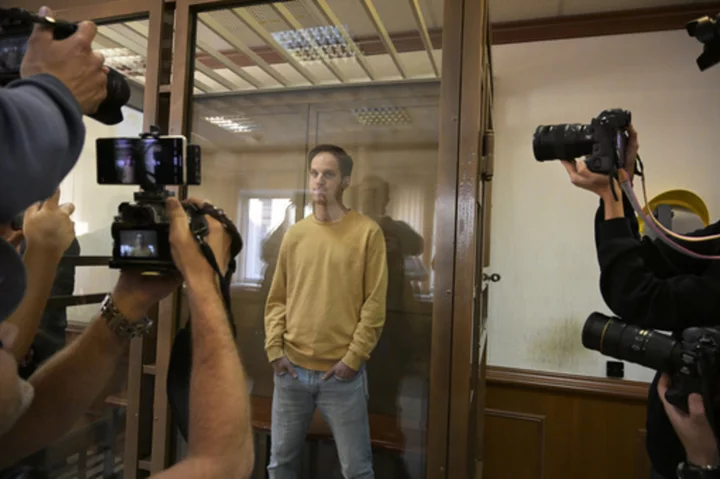
A Moscow court delays decision on the appeal of jailed Wall Street Journal reporter Evan Gershkovich
Wall Street Journal reporter Evan Gershkovich has filed an appeal to be released from jail on espionage charges, but the Moscow City Court did not immediately rule on it
2023-09-19 21:54

Scientists say monthly visits from family and friends can help you live longer
Scientists have found that visiting friends and family at least once a month can help you live longer. According to a recent study published by the University of Glasgow in BioMed Central Medicine, researchers discovered that there was a correlation between how often a person was visited by their family and friends with their life expectancy. Those who were never visited by their family reportedly had a higher risk of dying. Amid the ongoing loneliness epidemic, social isolation has previously been linked by researchers to a shorter life expectancy. This latest study sought to understand the effect that different types of social interaction have on our quality of life, with visits from friends and family, participating in a weekly group activity, and not living alone reportedly making the biggest difference among a group of 458,146 participants in the United Kingdom. Participants were between the ages of 37 and 73, with the average age being 56 years old, and data was collected between 2006 and 2010. Researchers asked the participants questions about the five different forms of social interaction: how often they were able to confide in someone close to them, how often they felt lonely, how often friends and family visited, how often they participated in a weekly group activity, and whether or not they lived alone. “We also tried to take into account lots of other factors that could explain the findings — like how old people were, their gender, their socioeconomic status, whether they were a smoker and more,” Dr Hamish Foster, a clinical research fellow at the University of Glasgow and the lead study author, explained to Insider. “And even after removing those factors from the equation it still showed that these social connections were important for risk of death.” Depending on when the participants were recruited, researchers would revisit the questions with the participants an estimated 12.6 years later to follow up. They reportedly found that, within those years, 33,135 or 7.2 per cent of participants died, with 5112 or 1.1 per cent passing from cardiovascular-related deaths. Strikingly, the study also found that “regardless of weekly group activity or functional components,” those who never had friends or family visit while also living alone were 77 per cent more likely to have a higher risk of death. However, Dr Foster cautions that the study is unable to take into account both the complexity and the quality of human social interactions. “Humans are really complicated and so are our connections and our measures in this study are pretty crude compared with what humans are capable of, but this study is still very detailed and is starting to drill down into how different types of connection are important,” Foster said to the outlet. He added that the study cannot prove that less socialisation causes death, but it does prove that loneliness and isolation can lead to not only poorer mental health but also poorer physical health. “We need to see more society-level interventions and support that make social connections easier, more likely, and of higher quality,” Foster added. “For example, community centers, parks, places, and activities that make it easy for people to meet and connect for high-quality relationships.” Dr Foster and his team of researchers aren’t the first to connect the dots between longer life spans and active social lives, with Netflix recently shining the spotlight on the famed blue zones - places with notably high populations of centenarians - in the docuseries, Live to 100: Secrets of the Blue. Within blue zones like Ikaria, Greece, or Okinawa, Japan, social interaction is prioritised within the community rather than being left on the backburner in favour of economic or individualistic pursuits. As the digital age and the pandemic have brought on an increase in social isolation, Dr Foster stressed that it’s important for young people to nurture their social lives and participate in their communities. Read More Blake Shelton opens up about parenting style with Gwen Stefani To shave or not to shave: How women can participate in No-Shave November Game of Thrones actor announces ‘unbearable loss’ of baby after stillbirth
2023-11-11 05:54
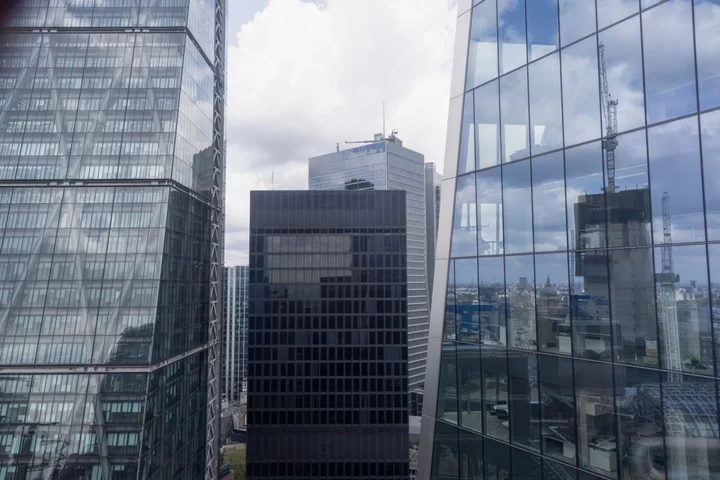
Aviva Crosses Inflationary Headwinds to Growth: The London Rush
It seems like inflationary pressures may take longer to dissipate, judging from the latest consumer price figures this
2023-08-16 15:15
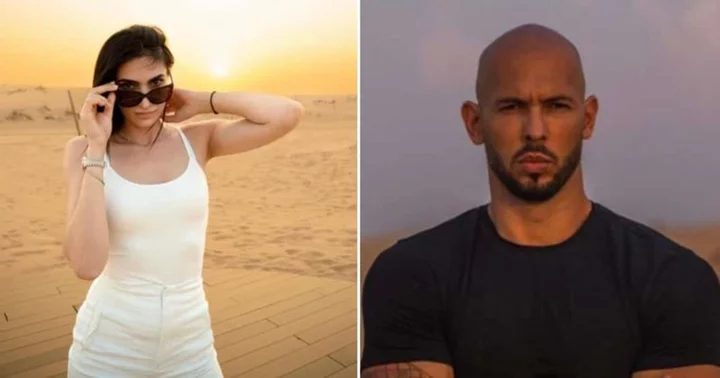
Who is Georgiana Naghel? 5 unknown facts about Andrew Tate's girlfriend
Georgiana Naghel, a renowned figure in Romania, rose to fame due to her alleged association with controversial influencer Andrew Tate
2023-07-09 14:29
You Might Like...
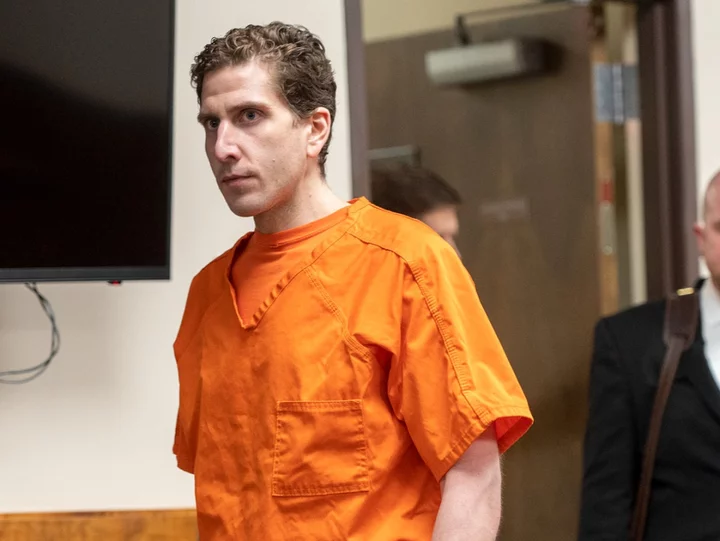
Bryan Kohberger - live: Idaho murder suspect’s parents ordered to testify for grand jury
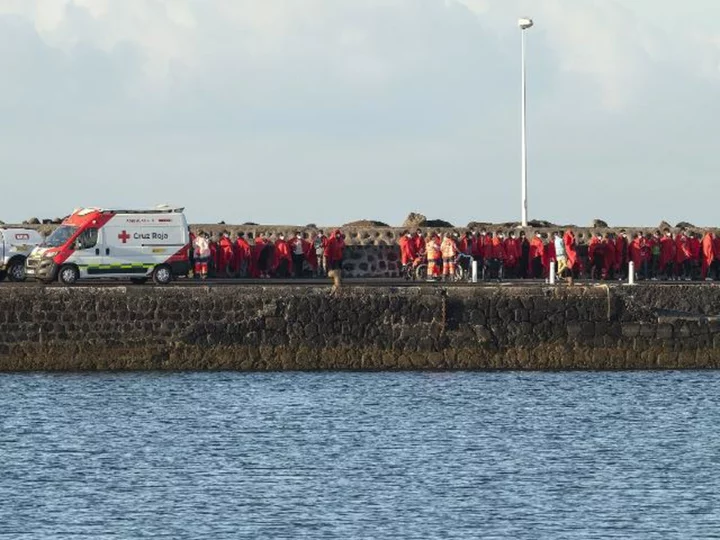
Dozens feared drowned after migrant boat sinks off Spain's Canary Islands
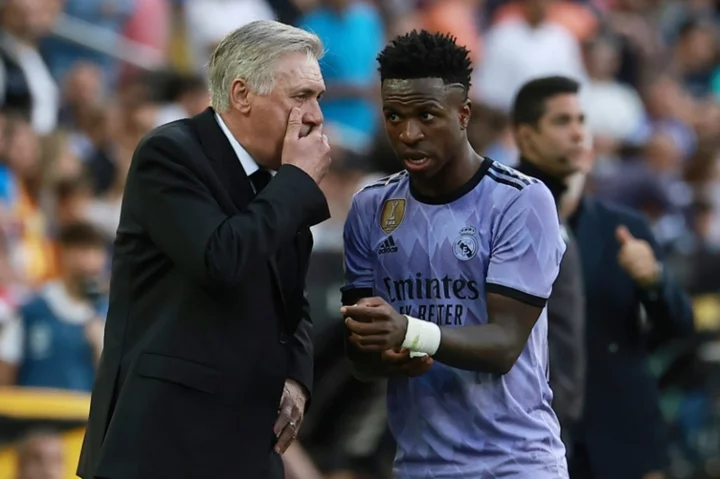
Real Madrid with Benzema void to fill as La Liga returns
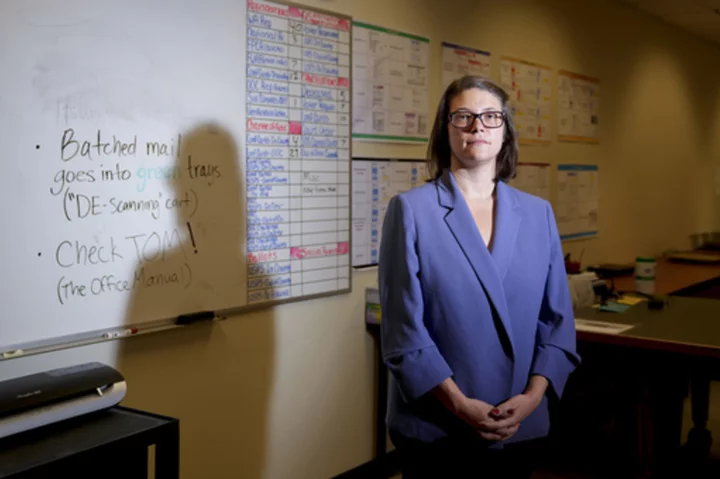
Officials stock up on overdose antidote naloxone after fentanyl-laced letters disrupt vote counting

Pokimane roasts Mizkif over controversial call with xQc, Asmongold and Trainwreckstv, Internet says 'none of these people are friends'
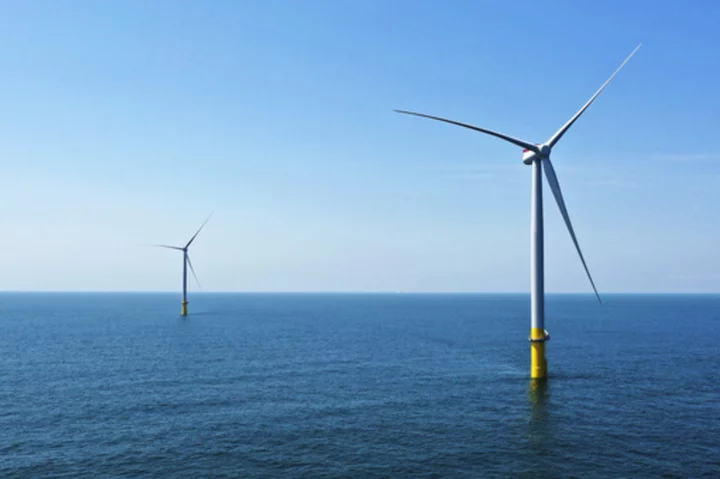
Siemens Gamesa scraps plans to build blades for offshore wind turbines on Virginia's coast
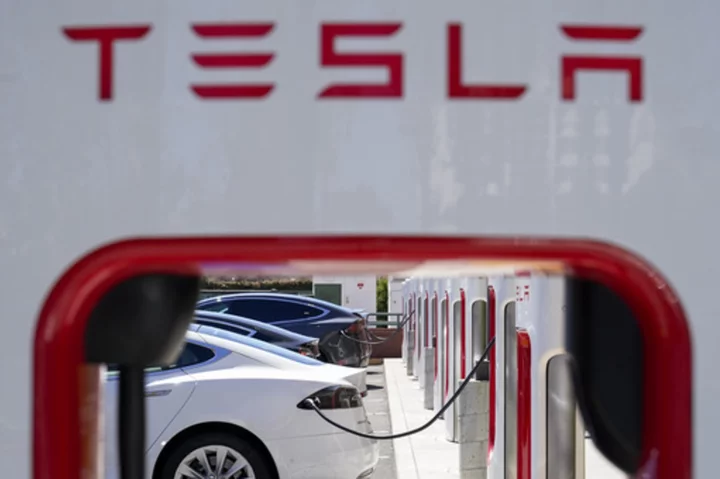
Tesla's Autopilot driver-assist system gets closer look as US seeks details on recent changes
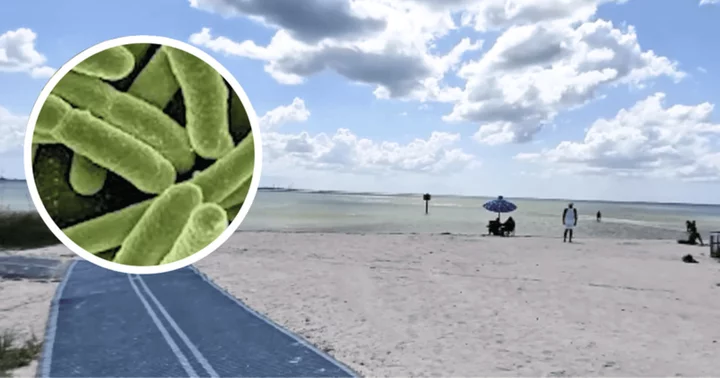
Labor Day beach alert: Docs warn Americans against swimming due to flesh-eating bacteria
